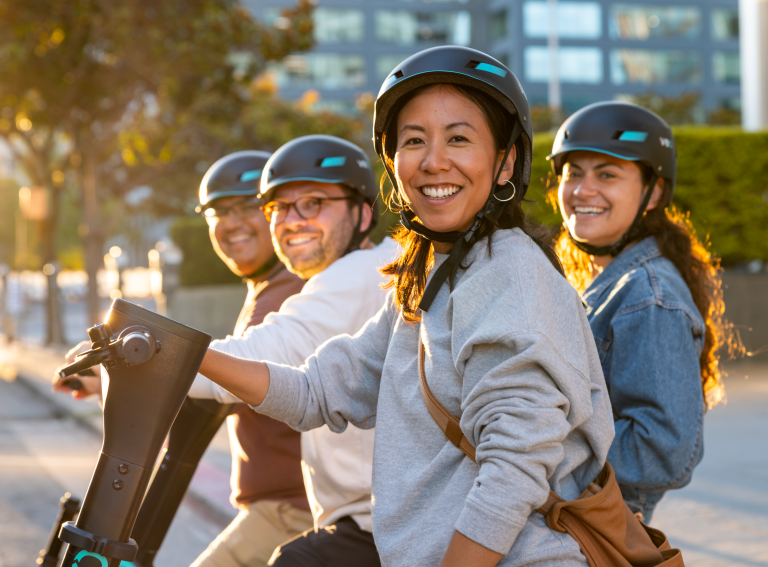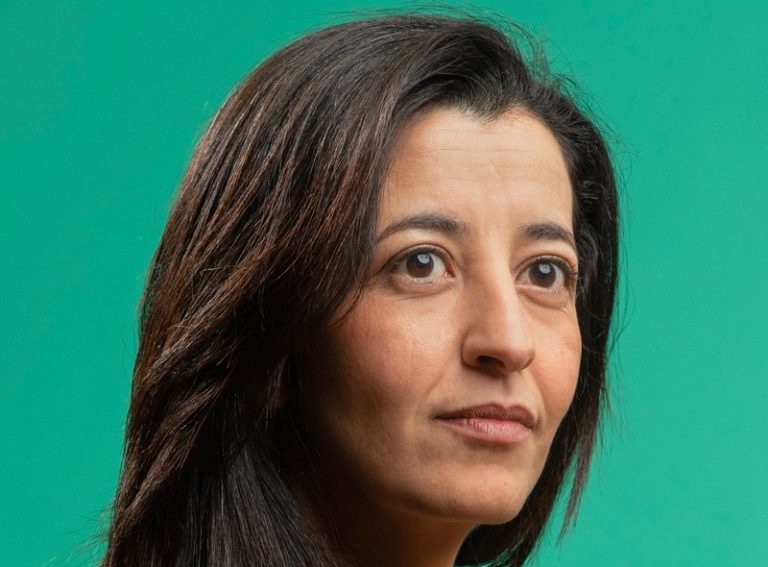Dott UK general manager Duncan Robertson speaks to Zag about why Dott was chosen for the London e-scooter trial (despite no previous presence in the UK) and how it plans to make the trial a success.

Zag: How big a development do you think the move into London is for micromobility and firms within that space?
Duncan Robertson: “I think it is hugely important for micromobility. Having the likes of London, Paris and now New York turning to e-scooters and embracing them as a genuine, real alternative to other transport, really cements the credibility of micromobility. TfL and the boroughs trusting operators to run a completely new mode of transport is a significant development for the micromobility space.”
Zag: With Dott specifically you have not been based in the UK as an operator during the trial so far, so what does it mean for you to have a presence in London?
Duncan Robertson: “London was always our key focus, so we passed up on, I would say, 90% of the opportunities that came up. Launching in smaller cities first is not really the way that we do things. We have got a slightly different expansion strategy which focuses on finding the larger locations first and then we start to go into smaller cities, to be able to benefit from sharing some of our warehousing and operational experience and leveraging economies of scale. We are slightly reversed to some others, but it is working. London is a launching pad for Dott in the UK and it ties in very much to how we tend to do our expansion. Maybe it is slightly unusual compared to the more prominent, launch everywhere approach.”
Zag: Why do you think that you were selected instead of the likes of Voi, who have had a huge presence in the UK throughout trials so far?
Duncan Robertson: “The feedback that we have been getting from TfL and London councils is that we were selected because of our dedication to safety and sustainability, but also our commitment to keeping our operations all in-house and our collaboration with cities. I think the key thing that Dott brings is real extensive experience in operating, at scale, in major European cities like Paris and Lyon, which is what came through in our bid. Not having operated in the UK is not really a prerequisite as it’s not about the area that you operate in, but the scale of the operation and the expertise of operation that really counts and I think that is what TfL were looking for. That is what they found with us and the other selected operators.”
Zag: Initially it was going to begin with 60 to 150 e-scooters per area, but the take up from the boroughs was quite small. So how do you see the service expanding across London in terms of numbers of e-scooters and areas?
Duncan Robertson: “The operator cap is 6,600 scooters at the moment, and we would like to get up into the 10,000s before too long. That said, we have to focus on safety and must ensure the services are well received. Furthermore, we need to work closely with all the local authorities and TfL to make sure that any ramp up is in line with their expectations, but also in line with the amount of parking that is available and the increase in the number of boroughs that are coming on board. We are going to be launching with five boroughs and Canary Wharf and I know that there are a number of others waiting in the wings to see how it goes in the first few weeks. The number of boroughs will increase before too long and the operating area will become a very robust and strong area that is all connected, offering a consistent service which is something that has been really lacking in Micromobility in London for many years. We will look to expand as quickly as is acceptable to local authorities, and work with them to make sure that it is all working as it should.”
Zag: How can you work with them to make sure that the trial is a success, not just in terms of expanding and increasing usage, but also in making policy makers see this as a route they want to go down with more permanent legislation?
Duncan Robertson: “I think the key to any trial with micromobility, is about getting people onto a scooter or e-bike. That is at a very low level but at a macro political level it is going to be about showing the decision makers what we can do and the benefits that we can bring. That will require us to provide the data, complete the analysis and really show how beneficial this can be. The area where it gets a little bit tricky is the crossover between shared scooter schemes and private scooters. Obviously with shared scooters, we have got a huge number of interventions that we can put into place to make sure that you know everyone is as safe as possible, both riders and non-riders. But that is much more challenging when it comes to private scooters and that is clearly something that the government, DFT and Ministers are going to be looking at. We can provide as much information, content, and data as possible, but then ultimately it is going to be for those key decision makers to analyse that and establish if it can be rolled over into private scooters as well.”
Zag: The speed limit is going to be slightly lower than it has been as standard across the rest of the country and riders will have to watch a safety video before taking their first ride. What are your thoughts on this?
Duncan Robertson: “The 12.5mph limit was a recommendation that we made, because listening to key stakeholders, including the police, they were very keen to make sure that the speed was tempered. We know that most accidents happen within the first two to three rides and we are introducing a new mode of transport here. There are going to be a lot of people that have never tried a scooter before so 15.5mph seemed a little excessive so we strongly support the 12.5mph. We will be pushing out safety information as much as possible because it is a new mode of transport and people require a certain amount of education.”
Zag: TfL has chosen the same three providers that have been operating in Paris. Is there anything from that experience that you can learn and apply to London?
Duncan Robertson: “We know that for London to be a success we all need to work together, because if one fails, we effectively all fail. . Collaboration is something that we have done well in Paris and is something we’re bringing across to the London trial. The other key learning from Paris is around parking. It is going to be critical that the number of parking bays in London continues to grow throughout the trial period. People must be able to get roughly where they want to go, so we need to really avoid any large gaps in the network, while providing proper capacity. In Paris we operate about 2,500 parking locations across an 80 square kilometre area. In London at the very start there are going to be fewer spaces than that, but we will be supporting the boroughs on providing data and doing site identification to help increase the number of parking spots so that we can be more like Paris. If you are going to operate designated parking, you need to provide enough so that people can be sure they can go where they want to go when they jump on a scooter. Parking also helps from a safety perspective and reduces the chances of scooters being seen as clutter or litter, as they are sometimes described.”
Zag: How are you going to manage the flow of scooters and make sure that scooters are where people need them?
Duncan Robertson: “This is very much our bread and butter. We pride ourselves on our ability to provide a service that is useful, and we are already working with local authorities on this. We have a lot of experience of working in places like London and are aware of the tidal flows that happen around commuter times in the morning and evening. It may not be there on day one but certainly as people get going back to offices, we will start seeing those commuter flows, particularly from some of the major rail hubs. We are very conscious of that and are working on plans to make sure that we can distribute our fleet appropriately to provide the best service possible.”
Zag: Is Dott still going ahead with their planned Bikeshare launch in London or are you focused solely on scooters?
Duncan Robertson: “We are hugely excited about our multimodal offering, and will be launching our e-bikes later this summer. To be honest, my focus is very much on the scooters right now, as we are gearing up for launch but as soon as that is done, we will be getting right back on bikes and cannot wait to launch this e summer. Unfortunately, I cannot say just yet exactly where we will be launching e-bikes, but we have secured an operating area and are keen to get that up and running. We will also be deploying bikes in Paris soon, as well as across several other cities that we operate in.”
Zag: Finally, what did you learn while working with Mobike?
Duncan Robertson: “The key thing is collaboration with cities and local authorities, you need everyone to listen to each other. Also by having a contiguous operating area (that the boroughs, local councils and TfL worked so hard to achieve), it is going to make operating easier while at the same time improving the user experience. This will make a huge difference, as when we operated at Mobike it was a very fragmented service offering.”





